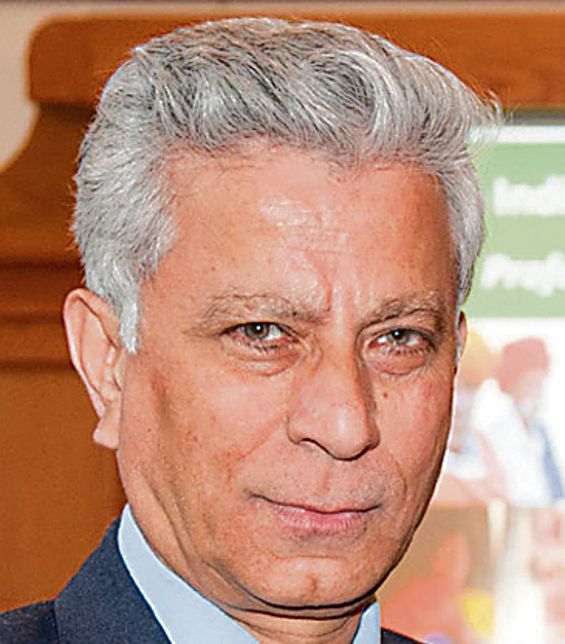Loneliness and lack of self-worth can also be killing
LONELINESS and a feeling of neglect can lead to a loss of dignity. This is not physical pain, but can also drive those who are incurably sick to opt for a quick, early death. This option does not exist in most countries, but the British Parliament recently allowed the terminally ill the right to medically assisted suicide. The focus was more on physical pain, not as much on mental trauma.
No description of bodily agony, the sheer torture, that many terminally ill patients go through can capture their actual misery. This aspect was covered in depth and profundity in the many passionate accounts by several British MPs. Emotional as they were, the aspect of loneliness and neglect did not receive adequate notice in the emotionally charged debate.
Undoubtedly, to witness somebody enduring such physical pain is impossibly wrenching. British Parliamentarians conveyed that grim sentiment very effectively. In this context it is interesting to note that a majority of those who asked for medically assisted suicide, did not mention pain as the reason for their choice as often as they did loneliness and neglect.
For this kind of psychological anguish there is no medical relief. That maybe why it did not receive as much attention in the British Parliament. For physical pain there are morphine tablets and fentanyl patches. When these are administered by palliative care specialists, they can vastly improve the quality of life for the terminally ill and bring about a peaceful closure.
Oregon was the first state in the US where medically assisted suicide was allowed. There have been a few surveys of those who have taken the lethal dose, under medical supervision, and their results are interesting. In one such study, of 367 patients, inadequate pain control was mentioned by 34.3 per cent, but loss of dignity was the reason why as many as 63.8 per cent wanted to die.
There are several attendant factors that together contribute to the loss of dignity and they don’t directly refer to pain. In the 2022 Oregon survey 89% most frequently reported end of life concern was the “decreasing ability to participate in activities that made life enjoyable.” In the US, pain has not been the leading motivation for people to seek medically aided death.
The freedom to die is the ultimate democratic right, so said the majority in the British House of Commons late last month. In this case, those for and against, voted across party lines, according to their conscience. Though medically assisted suicide for terminally ill patients has now been accepted by Parliamentarians in the UK, there are still hurdles before it becomes a law.
The supporters of the Bill emphasised the horrific pain that some terminally ill patients, particularly those with cancer, have to go through in their final stages. First-hand accounts of caring after loved ones suffering such misery were what swung the majority to vote for the Bill. The debates were heart wrenching and there were hardly any absentees, or empty benches, in the House.
Those opposing the right to die argued primarily that this was a slippery slope which would make the marginal even more vulnerable. Older people, with little ability to actively intervene, and the socially deprived, could easily be persuaded by relatives and interested parties to opt for assisted suicide. The tipping factor, in such cases, could be medical expenses.
Though there have been several surveys of what terminally ill patients really want, the full picture, somehow, did not quite get the coverage it deserved in the British Parliament. It is also true that matters like loneliness, inability to enjoy pleasures of life, loss of control over bodily functions, do not convey the pathos of the terminally ill as vividly as unbearable pain does.
Pain is the main reason why Canada, Switzerland, Holland, Belgium, Luxembourg, Spain and Austria have already allowed medically assisted suicide for the terminally ill. USA, the richest country in the world, ranks a low 43rd out of 81 countries, in the quality of care given to end of life patients. Poor countries fall behind, but not all rich nations are that caring either.
This support for end of life medically assisted suicide has societal connotations too. Britain was on top in the various surveys conducted on services to the terminally ill, but funding cuts to its public health sector, over years, made it difficult for it to retain its premier position. This may be why, after rejecting assisted suicide for long, the UK’s lawmakers finally passed it.
Loss of dignity does not really concern medical professionals. According to Erik Finklesten, Director of the well-known, Lien Centre of Palliative Care, a doctor’s focus is too much on trying to keep people alive and not enough on helping people die gracefully.” Needless tests and futile clinical procedures, add to a patient’s physical and financial stress, all to no avail.
In urban settings today, loneliness is not uncommon for circumstances have changed. Ties with family and friends are not as intense, and cannot be. If medically assisted suicide is ever legalized in India, the stress again will be on pain and, of course, expenses, especially for cancer patients. But the neglect that the terminally ill often experience, can be devastating too.
Loneliness and lack of self-worth can also kill, but for these ills there are neither patches nor pills!









